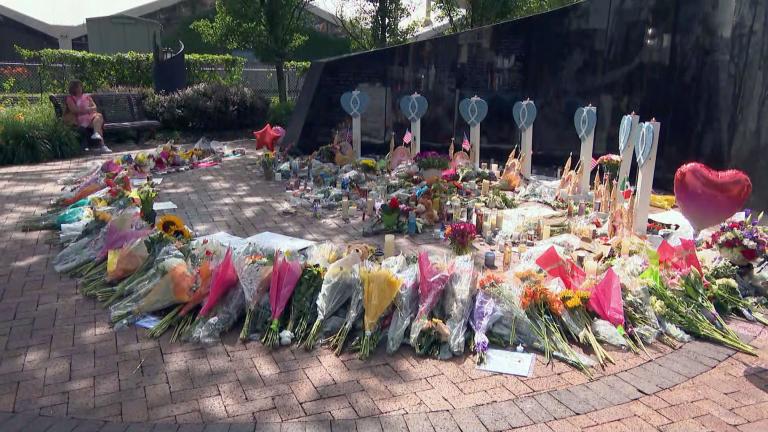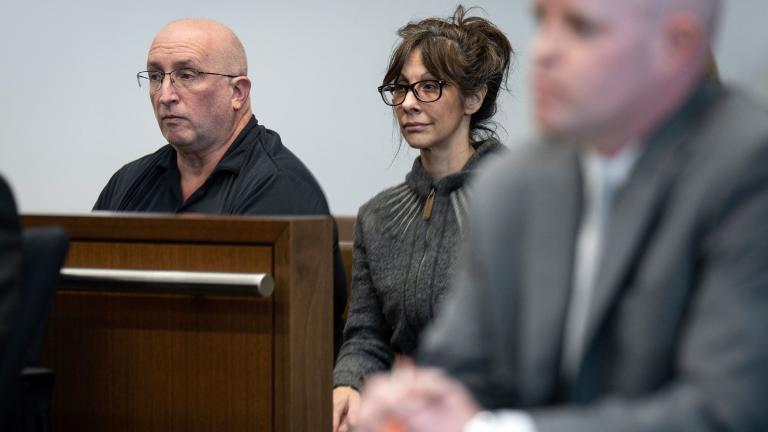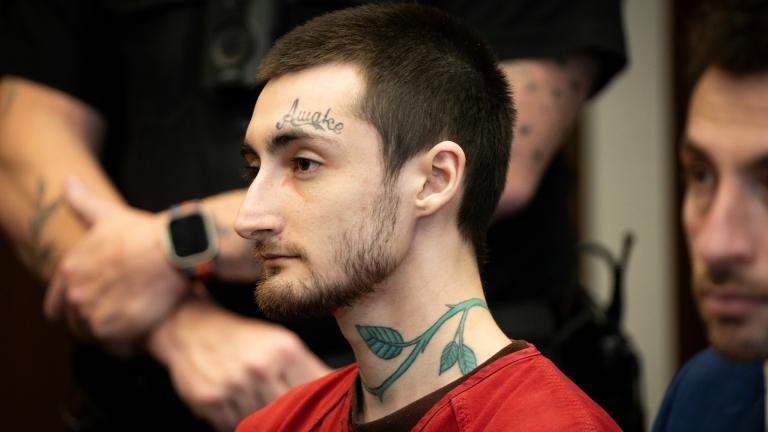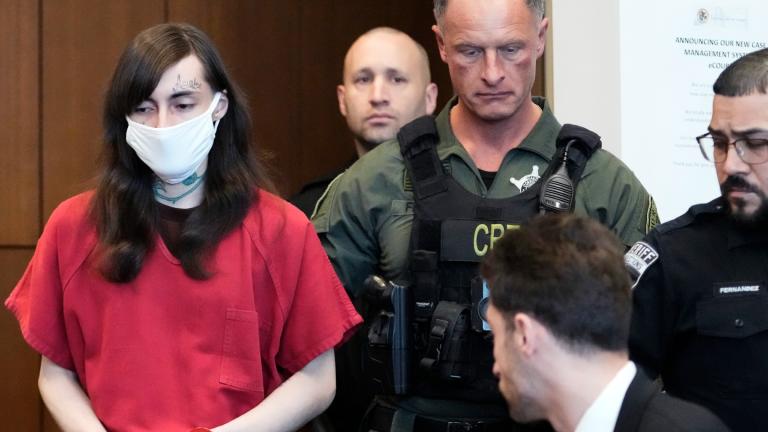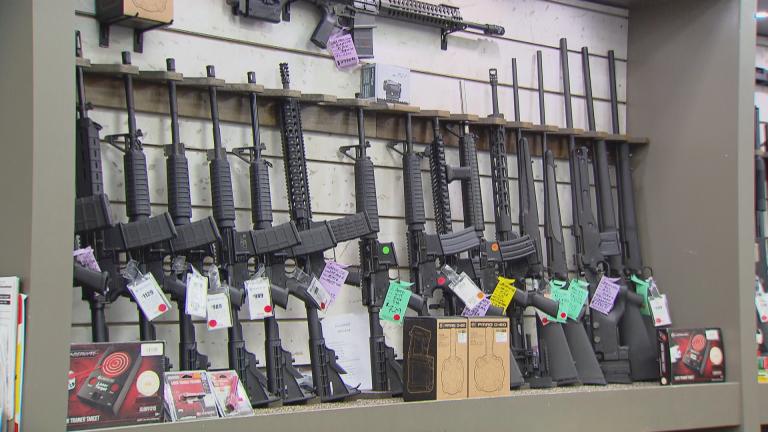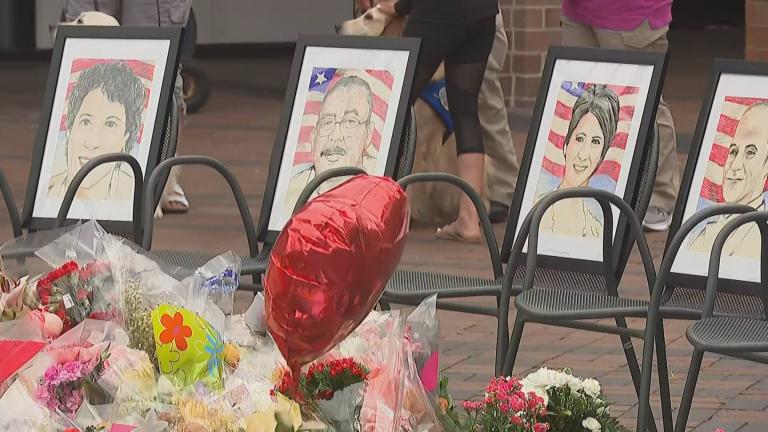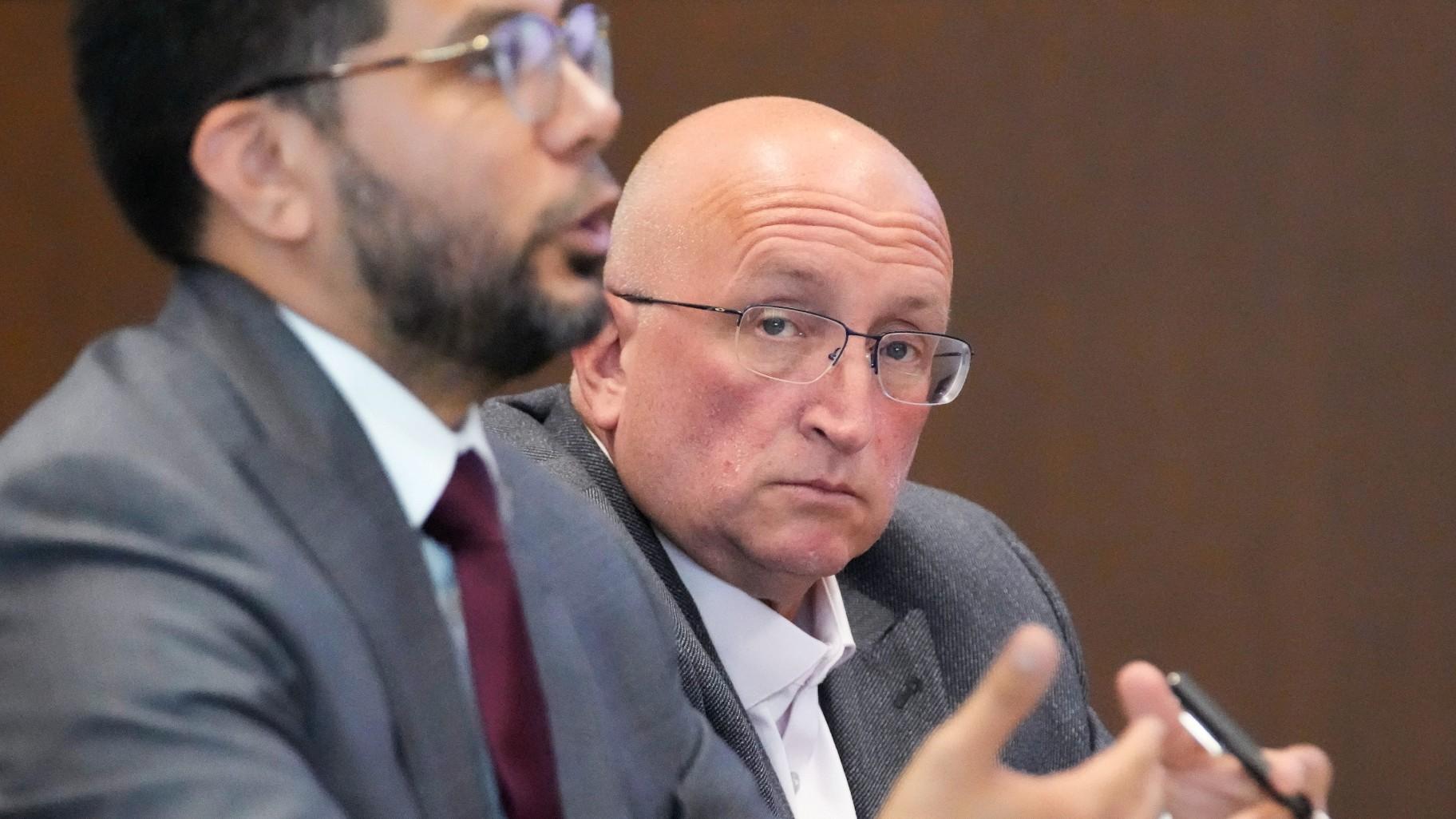 Attorney George Gomez, left, speaks to Judge George D. Strickland as Robert E. Crimo Jr., looks on during an appearance at the Lake County Courthouse, Monday, Aug. 7, 2023, in Waukegan, Ill. (AP Photo / Nam Y. Huh, Pool)
Attorney George Gomez, left, speaks to Judge George D. Strickland as Robert E. Crimo Jr., looks on during an appearance at the Lake County Courthouse, Monday, Aug. 7, 2023, in Waukegan, Ill. (AP Photo / Nam Y. Huh, Pool)
The reckless conduct trial of the father of the alleged Highland Park parade gunman will go forward as planned this November after a judge rejected defense motions seeking to toss the case out.
Judge George Strickland on Monday denied multiple motions filed on behalf of Robert Crimo Jr., including one that sought to have his criminal charges tossed out based on a violation of the state’s statute of limitations.
“We brought this reckless conduct case against Robert Crimo, Jr., because of our obligation to secure justice for the victims of the Highland Park July 4, 2022, shooting,” Lake County State’s Attorney Eric Rinehart said in a statement. “When Mr. Crimo signed the form that enabled his son to get an assault weapon, he also had intimate knowledge about his son's specific circumstances, a dangerous-mix that would have stopped any responsible parent from proceeding.”
Crimo Jr. was charged late last year on seven counts of reckless conduct — a Class 4 felony that carries with it a sentence up to three years in prison per count — months after his son, Robert Crimo III, was alleged to have killed seven people and wounded scores of others during the Fourth of July Parade.
Prosecutors have alleged Crimo Jr. took a “reckless and unjustified risk” in December 2019 when he signed his son’s application for a FOID card. At the time, Crimo III was 19 years old and could not legally obtain a FOID card or purchase a firearm without his father’s assistance.
Highland Park police had two previous interactions with Crimo III in 2019. One occurred that April after he allegedly attempted suicide. Months later in September, Crimo III allegedly threatened family members, saying he was “going to kill everyone,” according to prosecutors.
But Crimo Jr.’s defense attorney, George Gomez, claimed the three year statute of limitations to bring such charges against his client expired by the time of his arrest last December. Gomez argued that the crime Crimo Jr. is accused of occurred when he signed the FOID application in late 2019.
Rinehart said the last act of Crimo Jr.’s alleged crime occurred when his son opened fire during the parade, and argued that the statute of limitations should instead run until July 2025.
Strickland agreed and held that Crimo Jr. couldn’t have been charged in the time prior to the parade shooting, because no crime had yet occurred.
Gomez also argued that his client was charged under an unconstitutionally vague law. According to Gomez, prosecutors charged Crimo Jr. for “innocent conduct” — signing “a wholly truthful” affidavit helping his son apply for and obtain a gun license. This motion was also denied.
Crimo Jr.’s bench trial is set to begin Nov. 6. During Monday’s hearing, Strickland said he will allow extended media coverage — including a still photographer and television camera — in the courtroom during the case.
While neither side objected to that ruling, Rinehart noted that there could be a possible conflict.
Crimo III has been indicted on 117 charges, including 21 counts of first-degree murder stemming from the mass shooting. His trial date has not yet been set.
As the top prosecutor in the Lake County, Rinehart is in charge of both Crimo Jr. and his son’s case, and said he does not want to prejudice Crimo III’s trial through the airing of evidence in this trial that might not be allowed at the younger Crimo’s trial.
While Strickland acknowledged that concern, he noted that Crimo Jr.’s trial will be held in a courtroom open to the public and media, and said that any evidence presented could be reported on, regardless of whether any cameras were allowed in the courtroom.
Crimo III’s attorneys have not yet filed any objection to extended media coverage in Crimo Jr.’s case.
Thus far one witness has objected to their testimony being aired on television, but prosecutors said her in-person testimony might not be required.
A final hearing before the trial will be held Oct. 30.
The Associated Press contributed to this report.
Contact Matt Masterson: @ByMattMasterson | [email protected] | (773) 509-5431

